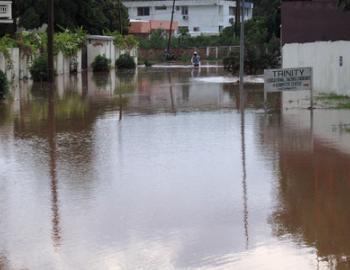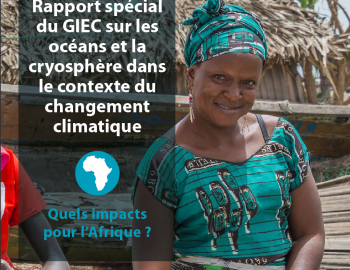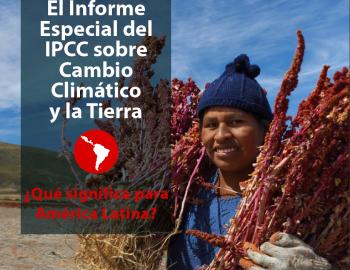INSIDE STORY: Strengthening climate resilience - the case of Grenada
INSIDE STORY: Strengthening climate resilience - the case of Grenada
Grenada is a Small Island Developing State (SIDS), consisting of three islands: Grenada, Carriacou and Petit Martinique. Historically the country has not been badly affected by hurricanes and other extreme weather events, but this has changed drastically in recent years. In September 2004, Hurricane Ivan wrought havoc across the country, and only 10 months later is was further ravaged by Hurricane Emily. It has also been affected by storm surges, tropical depressions, flooding and landslides - all leaving trails of destruction in their wake, including considerable damage to roads and other physical infrastructure.
This Inside Story, Strengthening climate resilience - the case of Grenada, describes how Grenada is a highly climate-vulnerable Small Island Developing State is using its Strategic Program for Climate Resilience (SPCR) to set the country on a path to mainstream climate resilient poverty reduction and sustainable development, through multilateral finance and technical support.
Grenada’s SPCR is concluding its major design phase and is on the cusp of implementation. The following lessons and implications have emerged so far:
Tailoring country-specific climate change responses: Climate compatible development means different things for different countries. In SIDS and other developing countries that have high vulnerability to rising sea levels and relatively low potential for emission reductions, resilience should be the primary focus of climate change responses, while still addressing greenhouse gas limitations through key sectors, such as forestry.
Comprehensive approaches to mainstreaming climate resilience: A comprehensive approach to reducing climate risk and disaster vulnerability is likely to work better than a piecemeal project-by-project approach.
Cross-sectoral and participatory design and implementation: The involvement of representatives from all stakeholder groups in the design and implementation of national programmes can increase the information base on which the programme draws. Furthermore, involving civil society at the implementation stage is vital.
Synergies with regional programming: CDKN and the UK’s Department for International Development have partnered with the Caribbean Community Climate Change Centre to develop a detailed Implementation Plan for the Regional Framework for Achieving Development Resilient to Climate Change. All Caribbean Community and Common Market (CARICOM) heads of state, including Grenada, endorsed the Implementation Plan in early 2012. To date, the regional and national tracks have advanced in parallel, and there is an opportunity to integrate them further.
Attracting external finance: Climate Investment Funds have already addressed some of Grenada’s finance challenges by supplementing domestic funds for the Disaster Vulnerability and Climate Risk Reduction Project. Funding for other initiatives is limited, but the provision of technical assistance under the SPCR may help attract international or private finance once the SPCR is fully operational.
Photo courtesy of Lee Coursey



